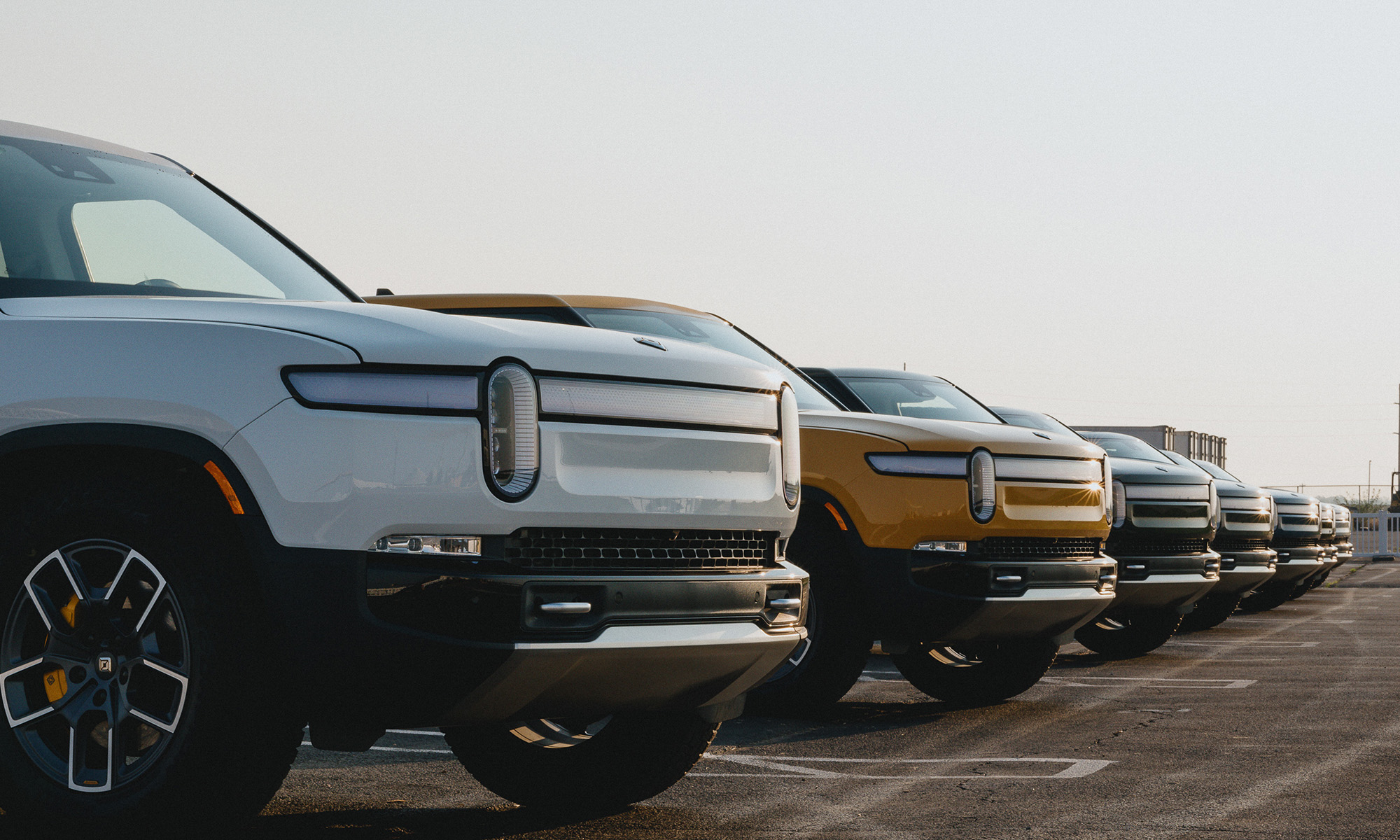The markets saw history made earlier this month after President Donald Trump and Tesla (TSLA 2.74%) CEO Elon Musk had a disagreement over public policy via social media in front of the whole world. As a result, Tesla's stock lost about $150 billion in market capitalization in a single day (a new company record). The stock has recovered a bit of that 15% drop, but it is still down about 6% just since the end of May. It would seem that investors are getting increasingly pessimistic about Tesla's future. Its financials and leading trends look ugly right now.
If you are an investor interested in owning electric vehicle (EV) stocks, does the recent fall by Tesla mean it's time to move to buy competitors such as Rivian Automotive (RIVN 0.78%) instead for your portfolio? Let's take a closer look at this smaller EV upstart and see if an answer presents itself.

Image source: Getty Images.
Tesla's market share losses
Since its peak in 2022, Tesla has begun to lose market share of EV sales in the United States. According to Car Edge, Tesla's estimated market share of U.S. EV sales fell from 75% in early 2022 to under 45% in the first quarter of 2025. These market share struggles are being seen in other large EV regions like Europe and China as well, although Rivian does not sell in those countries.
The market share losses come at a time when Rivian has finally brought its EV products to market. These include a premium truck, SUV, and a commercial electric van (mainly sold to Amazon). However, if we look at market share estimates in the United States, Rivian is only at 2.9% of total EV sales in Q1 2025. This is actually down from a peak of 5% in Q3 2023. Tesla's market share losses have not gone to Rivian. Rather, they are going to legacy players upping their EV game, such as General Motors.
Why is Rivian still so small? For one, the entire EV market has stalled in the United States. Plus, Rivian sells expensive vehicles with price points around $100,000 when including full upgrades. The vehicles have great reviews, but they are only affordable for a small segment of the United States population.
Rivian's upcoming product release
In order to grow its market share of EV sales, Rivian is investing quickly to build a more affordable EV for shoppers. It is working on a product called the R2, which is an SUV that will cost around $45,000 before upgrades, with plans to start deliveries to customers in 2026. This product pipeline is what investors are betting on when buying Rivian stock right now.
The R2 is Rivian's big bet to help it gain market share with a wider set of customers in the United States. The company's deliveries to customers have stalled out and begun to fall, with guidance to deliver just 40,000 to 46,000 vehicles in 2025 compared to 51,000 in 2024. When the R2 comes out, investors should expect Rivian to grow its overall deliveries to hundreds of thousands a year in order to reach a large enough scale to generate positive cash flow.
Data by YCharts.
Should you buy Rivian stock?
Rivian should get a growth boost when the R2 releases next year. Tesla's brand looks damaged and keeps losing market share, which will leave a lot of EV demand up for grabs for other brands selling cars in the $35,000 to $50,000 range. EVs still account for less than 20% of new car sales in the United States (when excluding hybrids), and I still believe the majority of new car sales will eventually be EVs in the future. This can be a rising tide that will help R2 deliveries soar in the years to come.
Investors better hope the R2 is successful, because Rivian needs help to improve its business fundamentals. The company is burning around $2 billion in free cash flow a year, with a history of negative gross margins. Its gross margin did improve to positive 17% last quarter, but this was only the second quarter the margin figure was positive. Some of this boost was due to the company's partnership with Volkswagen, which is a good sign as Rivian tries to get its financials on the right track.
Cash burn will likely continue as Rivian aims to scale up the R2 vehicle. However, it does have plenty of cash on the balance sheet and more funding on the way. There was $8.5 billion in liquidity at the end of last quarter, up to $3.5 billion coming from its Volkswagen partnership, and potentially $6.6 billion coming from a Department of Energy loan. This gives the company plenty of years left before running out of money.
But is Rivian stock a buy? I'm not so sure. It is a high-risk bet, and shares may do well if the R2 is a major success. However, even at a market cap of $16.6 billion and a low stock price, Rivian stock is a high-risk investment to make because of the major downside risk if the company cannot execute and achieve positive free cash flow. With this in mind, smart investors should avoid buying the stock today.








